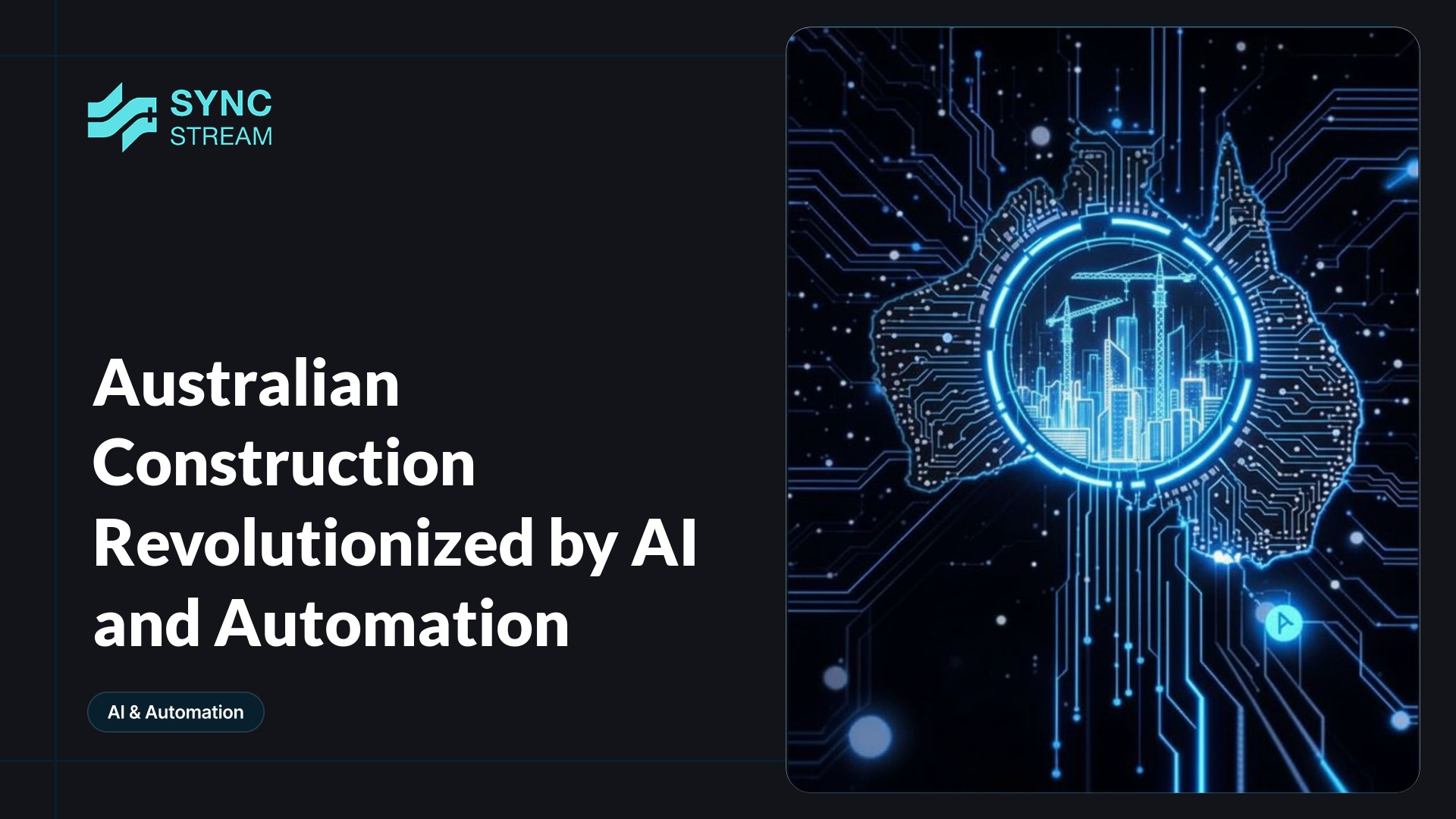
Customer Service Enhancements in Construction through AI & Automation
In an industry that is as dynamic and demanding as construction, the role of customer service cannot be overstated. As we have observed, customer expectations are ever-increasing, demanding more precision, transparency, and efficiency. Here in Australia, the construction industry has seen a profound shift towards integrating technology as a means to not just meet, but exceed these expectations. AI and automation have emerged as game-changers, enabling businesses to significantly enhance their customer service.
Revolutionising Communication with AI
What we know is that communication forms the backbone of effective customer service. AI tools such as chatbots and virtual assistants have revolutionised how construction companies engage with their clients. Chatbots, for instance, are available around the clock, which suits the varying time zones of stakeholders involved in Australian construction projects. These tools provide instant responses to inquiries, whether clients are seeking updates on progress, invoices, or general company information.
Furthermore, AI technology allows for data-driven decisions. By analysing the patterns in inquiries and feedback, companies can proactively address common concerns or issues, thus reducing the number of repetitive queries and enhancing customer satisfaction. This shift not only saves time but also ensures that any complex queries are passed on to human representatives, who can then offer more tailored support.
Enhancing Transparency and Trust through Automation
Trust is a cornerstone of customer relationships in construction. Automated systems have brought a new level of transparency to the process. Digital platforms enable real-time tracking of projects, allowing clients to monitor progress as it happens. We have found that when clients can readily access details about schedules, materials, and milestones, their confidence in the project management process increases significantly.
Moreover, automated documentation and reporting tools reduce human error and ensure that all stakeholders are receiving consistent and accurate information. This consistency is key in maintaining trust; clients can be reassured that they are receiving the same quality of data consistently.
Personalising Customer Interactions
While AI and automation bring efficiency, they also open up opportunities for personalisation. In the Australian construction sector, where relationships are pivotal, understanding individual client preferences and needs can greatly enhance service quality. AI systems can analyse customer data to predict future needs or tailor communication and offerings based on past interactions. Such personalisation can lead to an enhanced customer experience and a deeper connection between the construction company and its clients.
For example, predictive analytics can suggest when routine maintenance or project updates might be due, allowing companies to reach out with timely communications. These proactive measures demonstrate a commitment to customer care, conveying the message that each client is valued and understood.
Operational Efficiency and Service Quality
What we have found is that operational efficiency is directly linked to customer satisfaction. Automation streamlines several backend processes, which indirectly benefits customer service. For example, automating supply chain management ensures that materials are available when needed, reducing project delays. This streamlining allows construction teams to focus more on engaging with clients and addressing their needs.
By handling routine tasks through automation, companies can ensure that their human resources are deployed effectively, concentrating on value-added activities rather than getting bogged down with administrative duties. This not only enhances the quality of service provided but can also lead to faster project completion times, a critical factor in client satisfaction.
Meeting and Exceeding Client Expectations
As technology continues to evolve, so do customer expectations. Within the Australian market, there’s an increasing demand for faster, more efficient service with a personal touch. AI and automation not only meet these expectations but often exceed them, offering a seamless experience that blends efficiency with human-like interactions.
By adopting these technologies, Australian construction companies are better positioned to offer competitive services. They're able to operate with greater agility, responding to changes or challenges with speed and precision. This agility is a significant advantage in a sector where timelines and budgets are crucial. Companies that are proactive in their approach can turn potential disruptions into opportunities for strengthening customer relationships.
The Future of Construction Customer Service
In conclusion, what we see is that the integration of AI and automation in the construction industry is not just a trend—it's the future. Companies that embrace these technologies are likely to lead the way in customer service innovation, setting new benchmarks for the industry. For those operating within the Australian market, this advancement offers a unique opportunity to redefine client interactions, improve satisfaction, and ultimately drive business growth.
As Sync Stream, we are excited to be part of this evolution, supporting businesses in harnessing the power of AI and automation to transform their customer service experiences. As we look to the future, the potential for these
